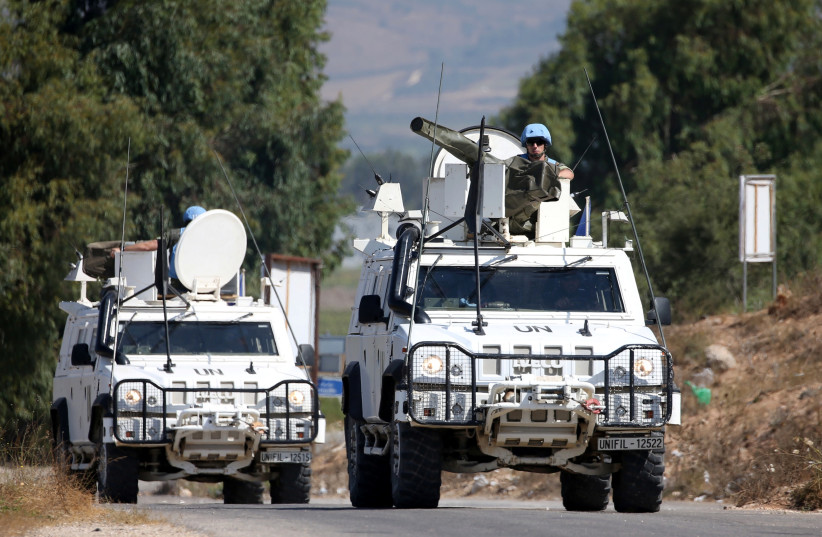Members of the United Nations Interim Force in Lebanon (UNIFIL) were attacked by unidentified individuals while traveling in southern Lebanon on Tuesday evening, according to Lebanese media.
Kandice Ardiel, a spokesperson for UNIFIL stated that the UN vehicles the troops were in were vandalized and official items were stolen in the attack. Ardiel stressed that the troops were not taking pictures and were not on private property and were just on their way to meet members of the Lebanese Armed Forces to undertake a routine patrol.

"UNIFIL condemns attacks on men and women serving the cause of peace, which are violations of both Lebanese and international law," said Ardiel. "UNIFIL also condemns actors who manipulate local residents into serving their purposes."
L'Orient-Le Jour, a French-language newspaper in Lebanon, called the reference to "actors who manipulate local residents" a "clear allusion to Hezbollah."
In December, UNIFIL troops were attacked by local residents in southern Lebanon after reportedly taking photos in certain areas, according to Lebanese media.
At the time, the Lebanese Foreign Ministry stated that it regretted the assault, confirming that "it does not accept any form of transgression against the UNIFIL forces."
The peacekeepers, now numbering around 10,000, have been stationed in southern Lebanon since 1978 when they arrived following an Israeli invasion during the 1975-1990 civil war.
Reuters contributed to this report.
